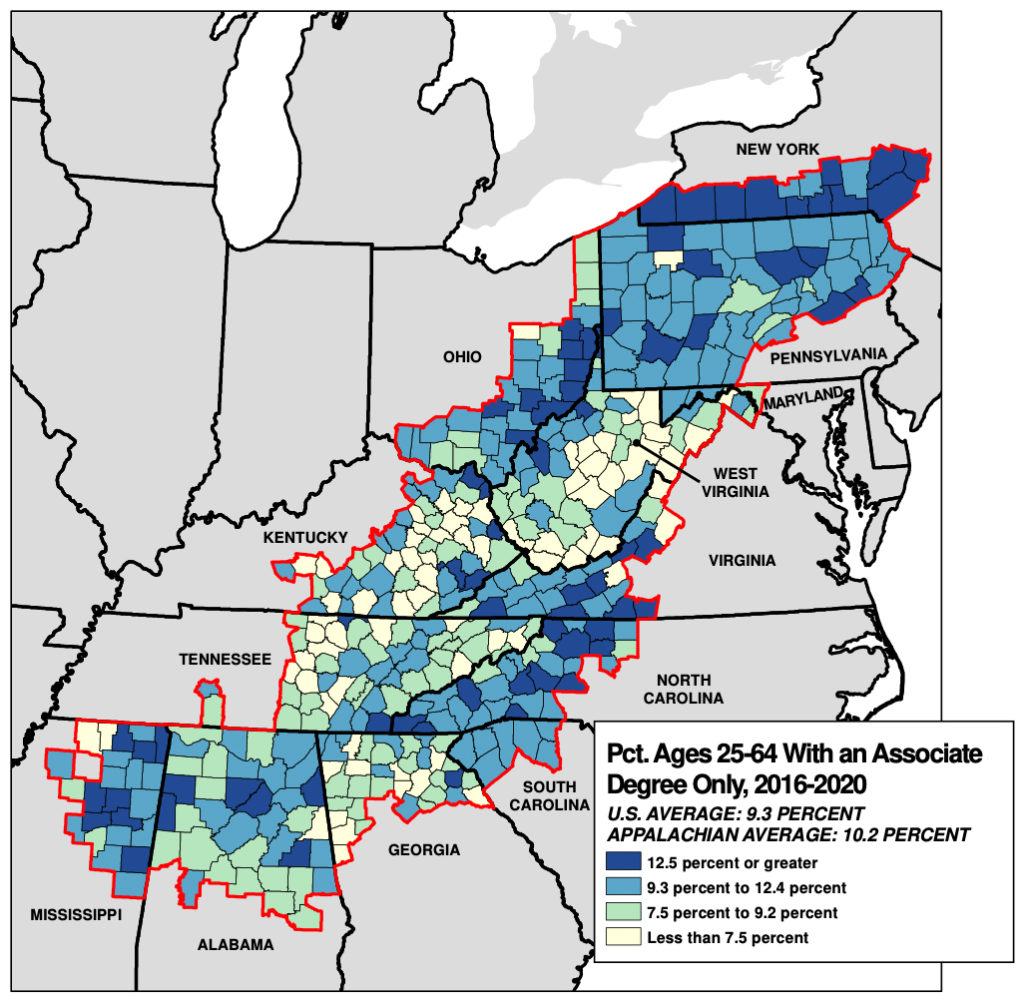Appalachia has a higher percentage of working-age adults with an associate degree but no bachelor’s degree than the national average, according to a new federal report that examines trends in the Appalachia region.

In 2016-20, 10.2% of adults ages 25 to 64 in Appalachia had an associate degree but not a baccalaureate, compared to 9.3% nationally, shows the annual data overview from the Appalachian Regional Commission released last week. That’s also a nearly 1 percentage-point increase (0.8) compared to 2011-2015.
Central Appalachia and Kentucky’s Appalachian section had the largest gains in the share of working-age adults whose highest education attainment was an associate degree, the report says.

Source: Appalachian Regional Commission, “The Appalachian Region: A Data Overview from the 2016-2020 American Community Survey,” September 2022.
In 74 Appalachian counties, at least one in eight working-age adults had an associate degree as their highest level of education, the report says. The share of associate degrees only was 11% or more in Appalachian sections of Mississippi, New York, North Carolina, Pennsylvania and Virginia.
But there were an equal number of counties (74) where working-age adults with only a two-year degree were less than 7.5%. All but eight of those counties were in Georgia, Kentucky, Tennessee and West Virginia, according to the report.
The region saw even higher increases (2.7 percentage points between 2011-15 and 2016-20) among working-age adults with bachelor’s degrees or higher, but it is still far behind the national average (26.9% versus 34.3%, respectively). However, the figure did exceed the national average in certain sections of Appalachia, such as counties in large metro areas, the report notes.

Source: Appalachian Regional Commission, “The Appalachian Region: A Data Overview from the 2016-2020 American Community Survey,” September 2022.
